
INTELLECTUAL POWER INGREDIENTS
ALL HAND PICKED, PLANTED, 100% NATURAL INGREDIENTS
ALL OF THE INGREDIENTS CONTAINED IN INTELLECTUAL POWER ARE HERBS.
THESE ARE NOT DRUGS.
THIS IS A DRIED HERBAL BLEND.

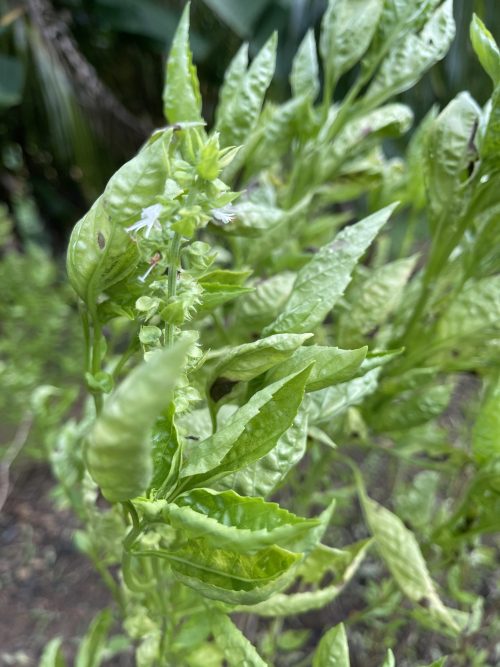
Basil (Ocimum basilicum)
Basil possesses adaptogenic properties, enabling it to assist the body in adapting to stress and maintaining overall balance. Additionally, it boasts antioxidant qualities that shield neurons from damage caused by free radicals.
Basil also exhibits hypoglycemic effects, making it a valuable tool for reducing and managing blood sugar levels. Furthermore, its antimicrobial attributes make it effective in combating infections and bolstering the immune system.’

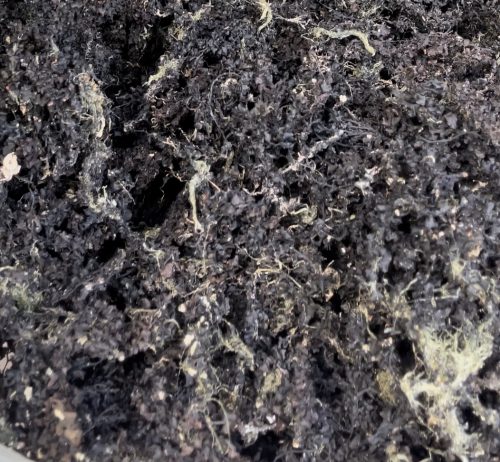
Bladderwrack (Fucus vesiculosus)
Bladderwrack is rich in iodine, a key element that enhances thyroid function, thereby regulating metabolism and potentially boosting energy levels and overall well-being. In addition to its iodine content, bladderwrack is a valuable source of essential minerals such as calcium, magnesium, potassium, zinc, iron, and manganese, which collectively support the nervous system's proper functioning. Furthermore, its abundant antioxidants contribute to the reduction of inflammation within the body.

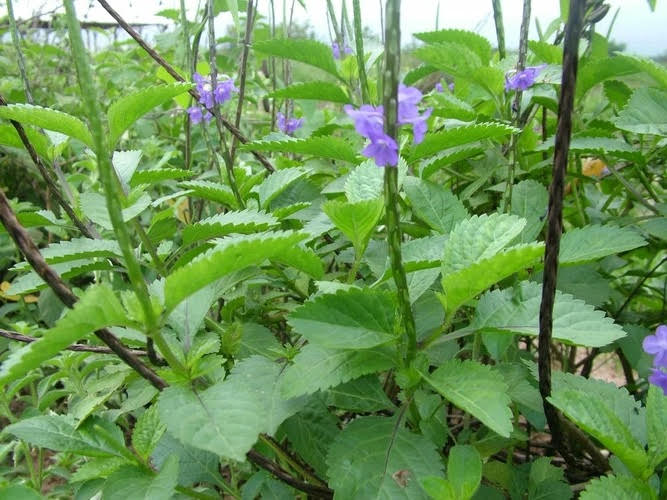
Vervain (Stachytarpheta jamaicensis)
Traditionally, vervain has been used for its mood-enhancing and sedative qualities, known to alleviate anxiety, induce relaxation, and enhance the quality of sleep. In addition to its calming effects, vervain is a source of anti-inflammatory properties, making it a valuable component in traditional practices aimed at bolstering immune system function. It is a relaxing and uplifting herb that may be able to stimulate the release of the neurotransmitters dopamine and serotonin, enhancing mood and well being.


Fitweed (Eryngium foetidum)
Traditionally, fitweed has been employed for its therapeutic properties in treating fits and seizures, as well as for its potential to help manage diabetes. Fitweed is particularly noteworthy for its potent nervine properties, which render it well-suited for addressing disorders of the nervous system. Additionally, it boasts antioxidant and anti-inflammatory attributes, further enhancing its potential as a versatile remedy for various health concerns.


Carpenter’s Bush (Justicia pectoralis)
Carpenter’s Bush is an antispasmodic which suggests that it may indirectly have a calming effect on the nerves by promoting physical relaxation. Research has further substantiated its traditional use as an anxiolytic, demonstrating its effectiveness in relieving anxiety.
Additionally, Carpenter’s Bush exhibits anti-inflammatory and antimicrobial characteristics, making it a valuable asset in combating infections.


Gullyroot (Petiveria alliacea)
Gullyroot is an analgesic herb that is very effective in treating headaches. Moreover, Gullyroot exhibits potent anti-inflammatory characteristics and demonstrates remarkable efficacy in reducing blood sugar levels.
Scientific research has unveiled its neuroprotective attributes, contributing to enhanced memory and the learning process. Additionally, Gullyroot boasts
antimicrobial properties and has traditionally been used to support immune function.

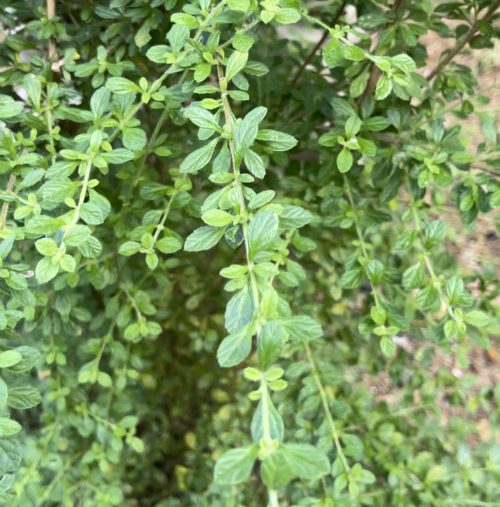
Oregano (Oreganum vulgare)
Scientific research has shown oregano's potential to offer protection against neurodegenerative diseases, alleviate anxiety-like behaviors, and enhance memory and learning. Additionally, oregano possesses potent antimicrobial properties, making it an effective combatant against infections.
Furthermore, it boasts mild analgesic properties, which have led to its traditional use in the treatment of headaches.

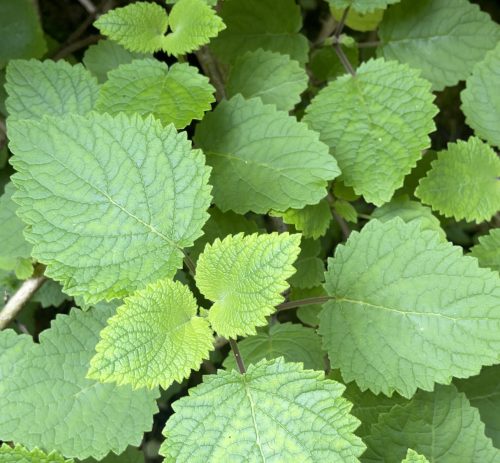
Patchouli (Pogostemon heyneanus)
Patchouli is not only a potent sedative and antidepressant but also serves as an excellent remedy for reducing stress, anxiety, and nervous tension while enhancing overall mood.
Its versatile properties extend to include anti-inflammatory and antimicrobial effects.


Rosemary (Rosemarinus officinalis)
Rosemary is an anti-inflammatory herb that also has nervine properties. Traditionally, it has been harnessed to alleviate stress and fortify memory.
Thanks to its rich iron and vitamin B6 content, coupled with potent antioxidants, rosemary proves highly effective in bolstering overall immune
function.
Moreover, rosemary's analgesic properties enhance its versatility as a natural remedy.


Sea Moss (Chondrus crispus)
Sea moss serves as both an anti-inflammatory agent and a potent antioxidant.
It contains a wealth of nutrients such as magnesium and potassium, which play pivotal roles in promoting nerve health.
Furthermore, its rich content of vitamins B12 and B6 supports optimal nerve function.
Additionally, sea moss is a of immune-boosting vitamins, including vitamins C, A, E, and K.

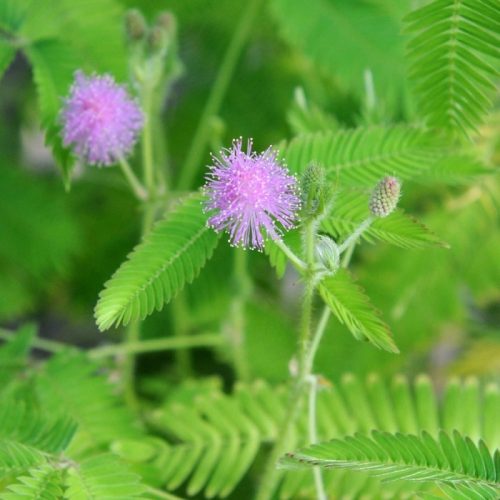
Sensitiva (Mimosa pudica)
Sensitiva serves as both a potent anti-inflammatory and antioxidant. Furthermore, sensitiva possesses antidepressant properties and promotes the regeneration of nerve cells.
In addition to these qualities, it boasts antimicrobial properties, enhancing its effectiveness in combating infections.

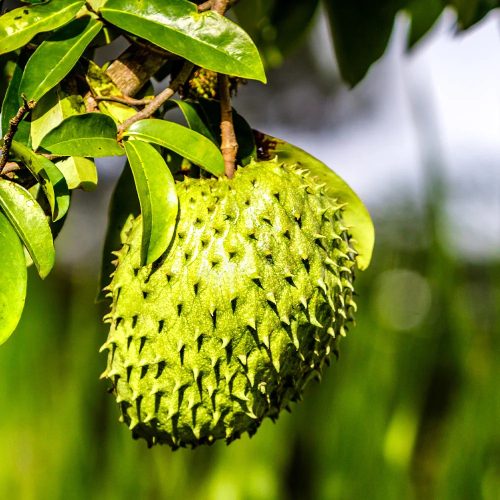
Soursop (Annona muricata)
Traditionally, soursop has been used as a sedative and anti-depressant herb. It’s health benefits include antioxidant, anti-inflammatory, and hypoglycemic properties.
Additionally, soursop leaves are a natural source of vitamin C, known for its immune-boosting qualities.

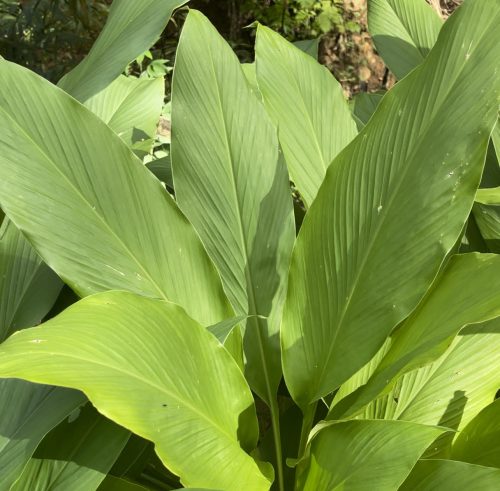
Turmeric (Curcuma longa)
Turmeric is known for its analgesic, anti-inflammatory, and antioxidant properties. Notably, its key phytochemical, curcumin, has been extensively researched and found to possess neuroprotective qualities. In addition to its numerous benefits, turmeric exhibits stimulant properties that enhance the absorption and efficacy of other herbs.
In India, it is traditionally used for disorders of the skin, upper respiratory tract, joints, and digestive system. Today, turmeric is promoted as a dietary supplement for a variety of conditions, including arthritis, digestive disorders, respiratory infections, allergies, liver disease, depression, and many others.


